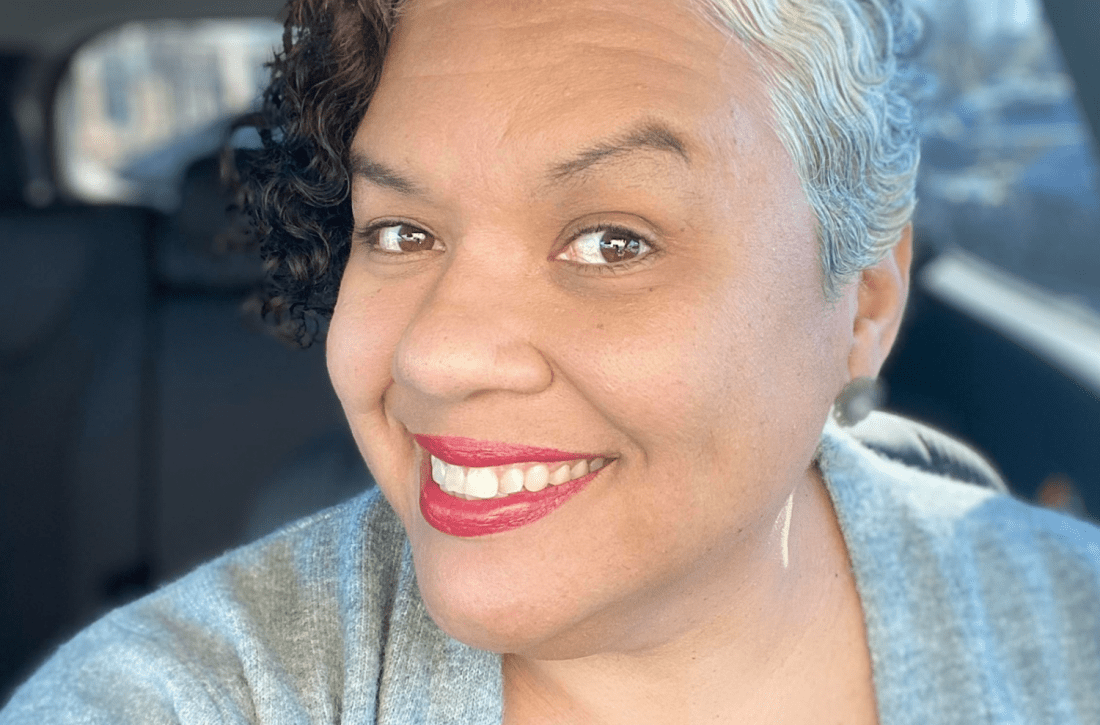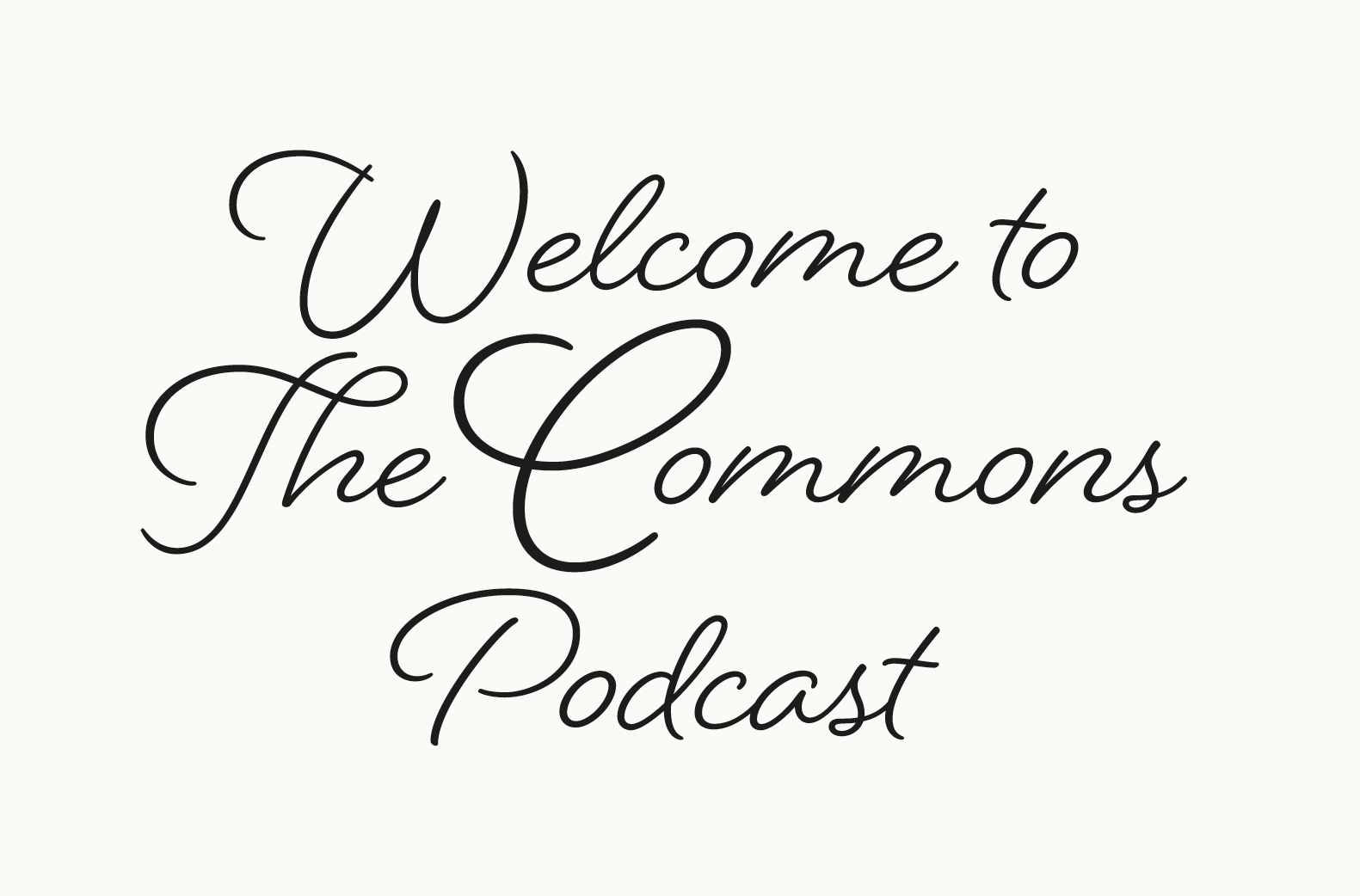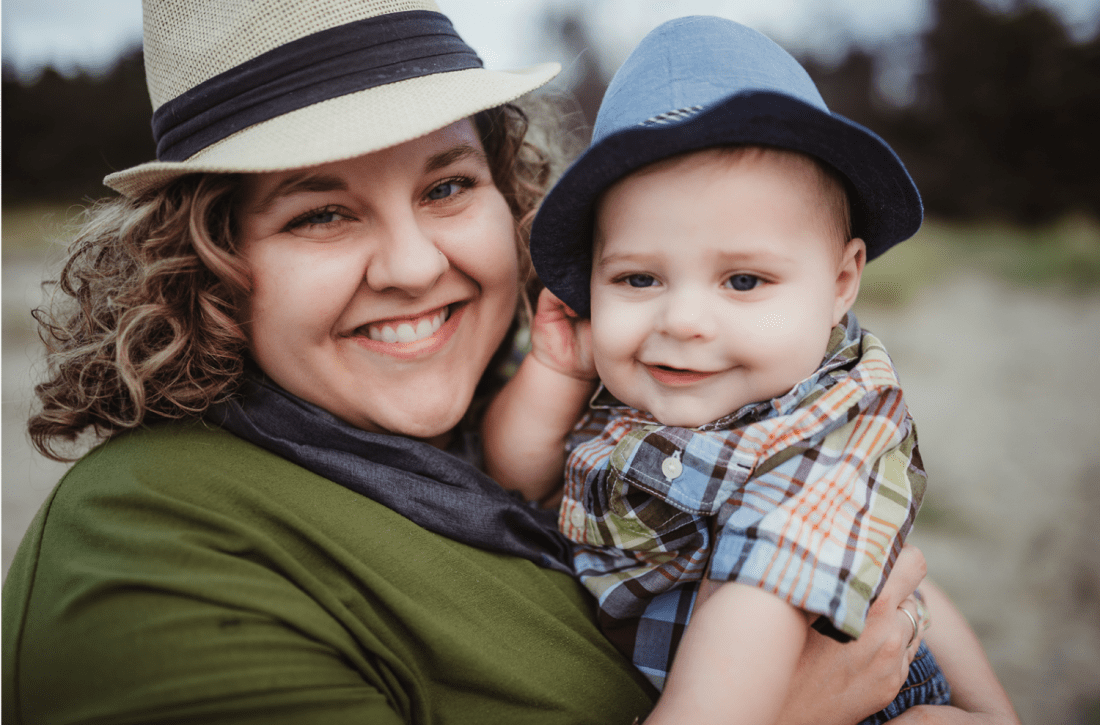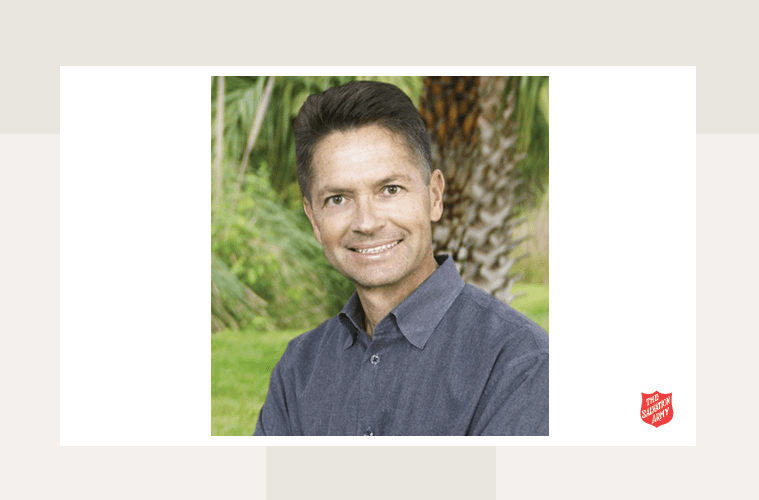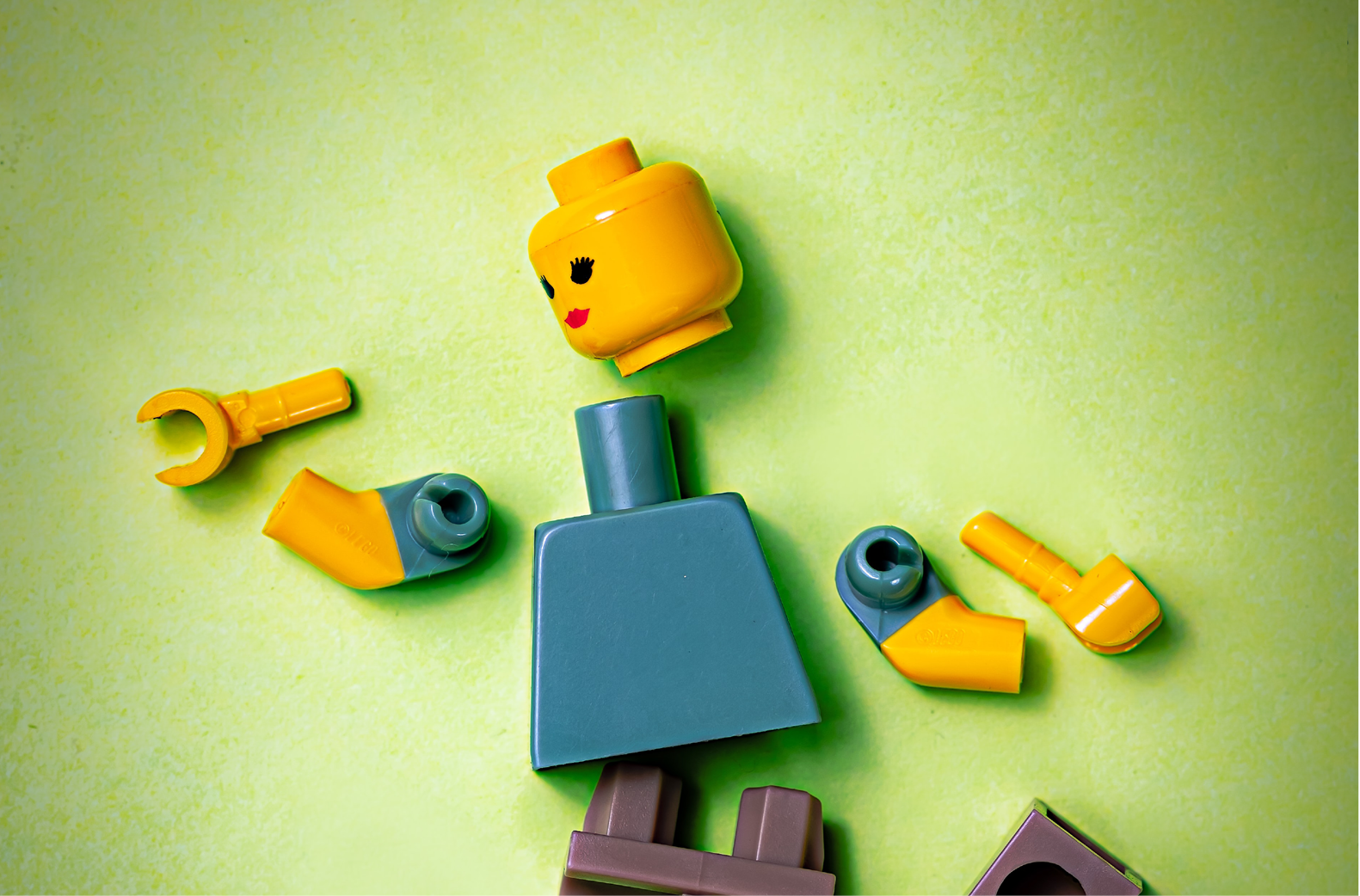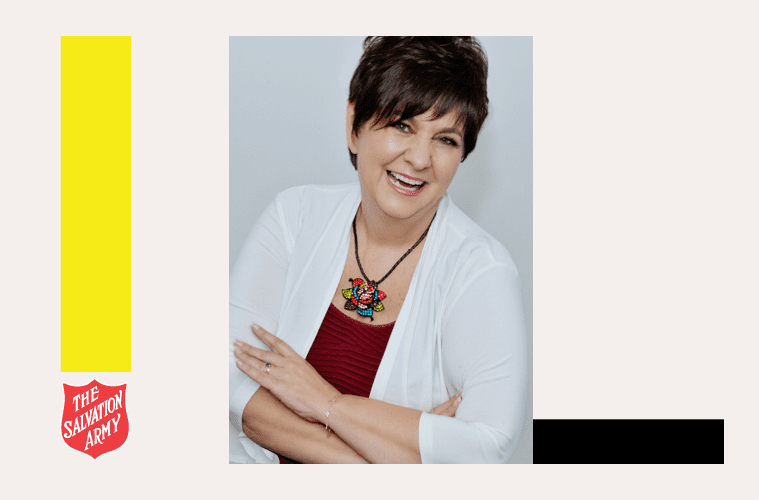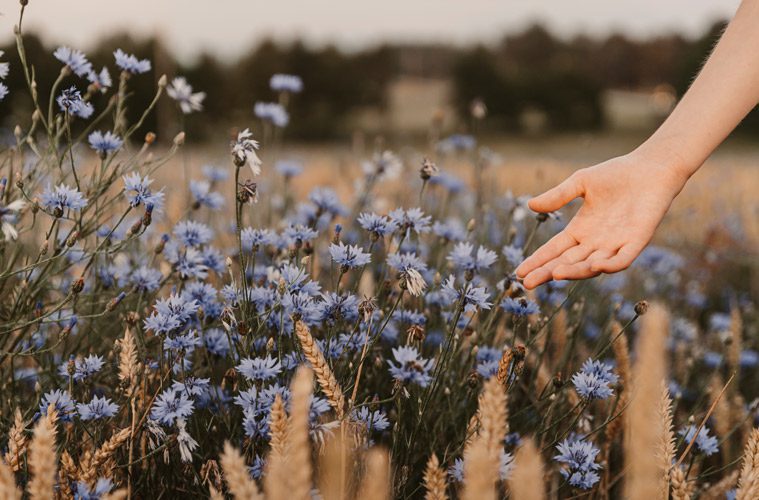Self-care is a cliche topic these days, but it is crucial to our functioning as healthy human beings.
Whether it’s getting enough sleep, enjoying a small treat or taking a day of Sabbath rest, as Major Lynn Stewart puts it, self-care is “taking care of yourself without feeling guilty.”
Major Stewart is The Salvation Army General Secretary for Metro Los Angeles.
She’s on the show today to share more about taking care of your body, mind and soul.
Show highlights include:
- Major Lynn Stewart’s indulgent, self-care treat.
- Taking care of ourselves in a holistic way: Body, mind and soul.
- Why it’s necessary to action when you are running on fumes.
- The dangers of “handling it all.”
- Why working smarter not harder is a way of honoring God.
- When self-care means re-evaluating relationships.
Listen and subscribe to The Commons Podcast now. Below is a transcript of the episode, edited for readability. For more information on the people and ideas in the episode, see the links at the bottom of this post.
* * *
Meagan Ruff: Alright. So today, we’re going to be talking about one of our favorite topics and a highly requested topic actually. And that is self-care. So, self-care looks different for a lot of people. When we were planning this episode, Cassandra and I were kind of talking about some of the ways that we’ve done self-care in the past and some of the ways we try to do self-care now. And one of our favorites was when we were both living in the same place and we were able to sneak away in the evenings and go to Target. That was one of our favorite self-care moments. We could get Starbucks in Target back when we were allowed to drink Starbucks inside Target. I don’t know if you’re allowed to anymore in California; we can’t in Hawaii. You’re not allowed to have food or drink in the store.
Cassandra Amezquita: Not really. They’re not chasing you down and tackling you if you do it. But I think it’s just people do out of courtesy and they don’t.
Meagan Ruff: Yes.
Cassandra Amezquita: But yes, those were good times. And I remember we would sometimes get even just waters from Starbucks, just walk around. If we were on a budget and only came for toothpaste on a good day, we would walk out only with that. On most days, we would just probably grab a bunch of stuff from the dollar section.
Meagan Ruff: Yes, dollar section. And then, I remember those chocolate covered cashews that they had. They were always in the checkout and it was a small bag. And I got them one time randomly. I think I was maybe pregnant and I was like, these are the best things ever. And then, I would end up getting them every time we were there.
Cassandra Amezquita: Either you were pregnant or I was pregnant during those years.
Meagan Ruff: Yes, during that whole time. There was always a good excuse for self-care and treats within self-care.
Cassandra Amezquita: Definitely.
Meagan Ruff: But self-care when you talk about it, there’s different types of self-care, right? So, a lot of people look at it in different ways. Some people really highly value it and make sure that they make time for self-care every day or every week or whatever it is. And some people really don’t see self-care is important or they might see it even as selfish. Especially I’ve tended to feel that way sometimes as a mom. Taking time for self-care, taking time for myself, when I haven’t sat down and played a board game with my kids like they want or I haven’t colored or gone for a walk with them, it can start to feel I’m being selfish. I don’t know if you feel that way ever.
Cassandra Amezquita: Yes, I can definitely relate. I think having little ones that need you 24/7 and beyond, it’s tricky to squeeze that time. And something I’ve noticed though is teaching them how to have self-care for themselves, giving them that quiet time and telling them this is a time for you to play on your own. Stuff like that it just makes them get those habits in at an early age. But yeah, I know there’s times where if I’m depleted and I haven’t had days where I take care of myself genuinely, I know it just affects everything else. It’s not good. It’s like running on empty.
Meagan Ruff: Definitely. And then, you also add an aspect of work, whatever it is that you do for work. And then if you’re married, you also have a spouse. And then, the kids and all of these things. And then on top of it, as believers, our time with the Lord is important as well. And so, sometimes it just feels self-care can easily get pushed to the very edge. And one of the things that I wanted to bring up I found, it was just a random blog post by a pastor talking about self-care but also talking about it from a spiritual sense. How taking time to care for yourself and care for your relationship with the Lord is an act of self-care. And he kind of lists four really quick points of self-care that are important for your relationship with the Lord.
One being intentional prayer. So Jesus got up in the morning very early, it says in Mark 35. And he left the house and went off to a solitary place and prayed. And with three kids at home, that sounds amazing if I could just get up in the morning and go do that. But that’s something Jesus did. And the things he did, he did on purpose to show us how to live. And so, I think it’s really important to recognize those things and also try to do them. And that doesn’t mean you need to be waking up at four everyday to go leave your house and pray alone for hours on end. But it’s just a good guide to be intentional about setting aside that time for your own self-care.
Cassandra Amezquita: Yes. Just having a habit of retrieving and analyzing how you’re feeling and connecting with God. Just a little check-in I think would be good.
Meagan Ruff: Yeah, definitely. Another point that the blog post says is spend time alone, which for me is really good because I’m an introvert, so I love spending time alone. That’s not hard for me. And again, it quotes Mark 6:31-32 and it says, then, because so many people were coming and going that they did not even have a chance to eat. Oh, I can so relate to that. Jesus said to them, “Come with me by yourselves to a quiet place and get some rest.” So, they went away by themselves in a boat to a solitary place. And so again, that kind of goes back to being married or being in a relationship, and then also having work, also having kids, having all of these demands that life puts on you to where… I don’t know if you’ve ever had a day where you, it’s two o’clock and you’re like, wow, I didn’t eat lunch. That’s not good.
Cassandra Amezquita: Yeah. There’s those little red flags here and there that our body is telling us, hey, you’re hungry. Don’t forget about me. Or even just having frustration or losing patience easily, I think those are some indicators. There’s something going on, maybe I just need some time to myself.
Meagan Ruff: Exactly. And so, the post has two last final points that kind of lead more into the self-care that you think about when you are scrolling Instagram or you see it on Pinterest like top 10 tips for self-care. And that’s to keep up with our needs, so hunger, sleep, all those things. And also, take care of our bodies. So health-wise, whether that’s exercise or getting your nails done or whatever it is that is good for you to take care of your body. Those are also things that Jesus cares about. So God doesn’t want us to just run our lives ragged, working all the time even if the work we’re doing is good work or work for him growing the kingdom. We still need to make sure that we’re taking care of our bodies because these are the only bodies that God gave us, right?
Cassandra Amezquita: Yeah. And we’re in charge of our own bodies. I tell my kids that all the time like, you’re in charge of your body. But we have to apply it to ourselves too, I think.
Meagan Ruff: Yeah. So, that was the end of that article. I just thought it was really cool. And we’ll link it in our show notes, so you can read it. It’s just a good way to look at self-care from a believer standpoint.
Cassandra Amezquita: Yeah, that’s really good. I think people will appreciate that. So now, I want to welcome somebody who I immediately thought of when we were thinking of the topic of self-care and that’s Major Lynn Stewart. Major Lynn, right now, she’s the General Secretary of Program Development to the LA Metro Area Coordination. And she’s just been so influential for me, personally, of what it means to just prioritize those little things of caring for yourself, how that’s not a selfish thing but it’s just essential to living good, happy lives, I think. And also, how it is a form of soul-care as well. Just connecting with God, caring for our body, mind, spirit and all in a wholesome way, it’s crucial. So, I hope you will enjoy the words that she shares with you today. All of our listeners, I’m sure there’s something important you can learn today. So, open your ears and your heart and let’s welcome Major Lynn.
Major Lynn, welcome to The Commons Podcast. Thank you for being here. We’re going to start with some rapid fire questions for you and answer them. As soon as they come to your mind, try to have an answer for us.
Lynn Stewart: Okay.
Meagan Ruff: All right. So we’ll start with the first question that is, what’s your favorite Scripture?
Lynn Stewart: Isaiah 41:10.
Meagan Ruff: Oh, that’s a good one.
Cassandra Amezquita: What’s the most recent book that you read?
Lynn Stewart: The most recent book that I’ve read was “Caste.”
Meagan Ruff: Okay.
Lynn Stewart: “Caste,” it’s excellent. I recommend everybody read that.
Cassandra Amezquita: What’s one thing that’s stood out for you?
Lynn Stewart: It gave me a better understanding about how in today’s society we have our own caste system. So that could be in the workplace, that could be in the Church, that could be in schools. We’ve created our own caste system within our society, which isn’t really good. It’s not good at all, actually. So, just learning about that and how we can switch that up and start doing the right thing and looking at people as people of value.
Cassandra Amezquita: Okay. I’m going to add that to my Amazon list.
Meagan Ruff: Thank you for sharing that.
Lynn Stewart: Oh, get it. It’s excellent.
Meagan Ruff: Okay. Next question, do you consider yourself more introverted or extroverted?
Lynn Stewart: I’m an extrovert.
Cassandra Amezquita: Doesn’t surprise me.
Meagan Ruff: Extrovert, yes.
Lynn Stewart: And I’m not going to apologize for it.
Meagan Ruff: No, don’t.
Lynn Stewart: I am an extrovert.
Meagan Ruff: That’s great. The world needs extroverts for sure.
Lynn Stewart: They really do.
Cassandra Amezquita: All right. And then the next question is, what is your go-to coffee order?
Lynn Stewart: Okay. So it used to be, because I can’t drink coffee anymore, but it used to be just a skinny latte with oat milk.
Meagan Ruff: So, do you get something else instead of coffee? Do you get tea or something else or just skip it altogether?
Lynn Stewart: I get tea, so I’m drinking a lot of tea lately. And if I’m going to Starbucks, I often will order the matcha green tea latte without milk.
Meagan Ruff: Yes.
Lynn Stewart: It’s a winner.
Cassandra Amezquita: Yes, one of my favorites for me.
Meagan Ruff: I don’t typically order matcha as a regular drink, but I do enjoy it especially from the Yellow Vase by CFOT. That is, I miss going there and getting matcha.
Lynn Stewart: Oh, I’ll have to try that.
Meagan Ruff: It’s really good.
Lynn Stewart: I want to go there and try it. Okay.
Meagan Ruff: It’s really good.
Cassandra Amezquita: It’s one of the best. Okay. This is a little confession, but in the beginning of the pandemic, I definitely indulge in Cadbury eggs. I do usually in general during Easter time.
Meagan Ruff: The mini ones, right?
Cassandra Amezquita: Yes, the little dark chocolate ones. They are so helpful. So when I was taking care of my kids, it was stressful, it was the pandemic, the peak of it. And I said, like, oh, mommy’s having a chocolate right now because I feel a little stressed out. So later when she would see me eating it, she’s like, mommy, are you feeling a little stressed out? So I run out, but I’m looking forward to when they come out again. But is there any little indulgent self-care treat that you have for yourself?
Lynn Stewart: Yes. And this is very rare because I don’t eat this tons anymore. I don’t eat a whole lot of it, but salt and vinegar chips. Every now and again, I have to have a bag of Lay’s salt and vinegar chips and it just does a trick.
Meagan Ruff: Yes.
Cassandra Amezquita: My mouth is watering thinking about it.
Meagan Ruff: I know. We had some not too long ago. So good, salt and vinegar.
Lynn Stewart: Everything is right in the world when there’s a good bag of salt and vinegar chips around.
Cassandra Amezquita: A good bag of chips.
Meagan Ruff: It’s funny because this is The Commons Podcast, which we named after The Commons at CFOT because Cassandra and I worked there together. And we kind of talk about that in our intro episode for the podcast in general. But one of the most popular things in The Commons was the Miss Vickie’s brand salt and vinegar chips. So everything’s coming full circle right now. Our first episode in The Commons and we’re talking about salt and vinegar chips, it’s perfect.
Cassandra Amezquita: Yes, this was not planned.
Meagan Ruff: Those would sell out. We would get the Costco box of the mixed kind. And the salt and vinegar would sell out right away. And we’d have all the other ones and everyone would be like, ah, barbecue. Where’s the salt and vinegar?
Lynn Stewart: Yeah, throw that out. Yeah I know, salt and vinegar all the way. Miss Vickie’s that’s a great brand too.
Meagan Ruff: Yeah. And it has pretty packaging, which I like.
Lynn Stewart: That is so true.
Cassandra Amezquita: That kettle crunch.
Meagan Ruff: Yeah.
Cassandra Amezquita: So, we’re going to go into our questions on self-care now. And we think you have so much wisdom to share and no pressure. But we’re going to go ahead and go into the first question which is, how would you define self-care, Major Lynn?
Lynn Stewart: I would define self-care as taking care of yourself without any guilt.
Meagan Ruff: Yeah, that’s good. We actually had someone specifically ask about that aspect of guilt with self-care.
Lynn Stewart: Right. Taking care of yourself without guilt and being intentional with that self-care.
Meagan Ruff: Yeah.
Cassandra Amezquita: Sometimes I think for some of us it’s easier said than done, right?
Lynn Stewart: Yeah.
Cassandra Amezquita: It’s easier to advise self-care to others rather than do it for ourselves.
Lynn Stewart: Exactly.
Meagan Ruff: So, what are some practical ways to take care of ourselves, do you think?
Lynn Stewart: Well, I think it’s really important to first make sure that you’re getting enough sleep, that’s huge. They say that you need seven to eight hours but if you can even get more than that for your body to function, that would be ideal. For me, I started with healthy eating. So, just removing all of the junk that… And I just talked about salt and vinegar chips, but that’s okay, no judgment. But having a healthy diet. Okay, I’m going to even take the word diet out of there. Healthy lifestyle, as far as eating properly, taking lunch breaks. As officers and being in the work for so many years, we didn’t really take lunch breaks. We just worked right through.
But being intentional with lunch breaks or taking a break in the middle of your day. Exercise is huge, so walking or whatever it is that you enjoy. But moving on a regular basis is important. And then, there’s all the other little things that you can do as far as getting your favorite face mask or watching your favorite TV show, whatever it is that just get you to the point where you feel good about yourself and you take care of yourself. Yeah, those are just some things that’s important to do.
Cassandra Amezquita: It’s meeting those basic needs fully, right? And in a healthy way to start, right? And then later, adding on. The rest is toppings of self-care.
Lynn Stewart: Right. Because you can really tell when you’re off balance. And with all of those things, of course, you want to make sure that your prayer life is on point and that you’re spending time with the Lord first and foremost, right? You can tell when you’re off balance. When you have to step away and say, okay, something is just not right. Let me just take a minute. Let me take a moment and get back on track.
Meagan Ruff: Yeah.
Cassandra Amezquita: Right. That definitely makes sense. Did you ever have a time when self-care wasn’t a priority for you?
Lynn Stewart: Oh, absolutely. So, we’ve been officers for almost 23 years. And so, early on in our first 10 years or so of officership, self-care was not a priority. I was a mom with four small kids, an officer, and a wife, and everything else that comes along with that. And it was just not a priority for me. It was all about just taking care of the kids, making sure that everything was done at the corps, and even putting my husband first in a lot of cases as well. So I was just kind of, how can I put it, just kind of a fast moving engine, just non-stop. I remember not even getting even five hours of sleep at night. So, I would operate on three to four. So yeah, but I would have to say, early twenties, early officership, self-care was not a priority.
Meagan Ruff: So as a young officer, as a mom of three, I have three girls, five, three, and one, I totally understand the five or less hours of sleep. It seems that when one kid falls asleep, another one wakes up. And it’s not worth it to try to get eight hours. So, what shifted for you? What changed that made you really make self-care a priority?
Lynn Stewart: Well, here’s the thing, I think a lot of times we’re just trained this way. My mother, she was a hard worker. She was an officer and she just worked hard. So, I also went with that mentality. You have to have a good work ethic. You have to be a good mom, good wife. You have to handle it all. So actually, I had a breaking point with my health and my children too. I was putting so many hours at the corps. Imagine this in your mind. So, we had a thrift store at the time. So, I would go from the corps to being the cashier at the thrift store. So again, no judgment. But my babies would be falling asleep on piles of clothes in the back of the thrift store. So there was a lot that I had to do, as far as my health was concerned, but also my family.
Cassandra Amezquita: Yeah, definitely. And I’m sure they have some good memories jumping around through those clothes too.
Lynn Stewart: They do, but I know it wasn’t easy for them.
Cassandra Amezquita: Yes, I’m sure. So what would you say to somebody who has that mentality like, I don’t have time for self-care? What would you say to them?
Lynn Stewart: Well, that’s absolutely not true. You do have time for self-care and we have to make it a priority. And let me just say, just because you’re practicing self-care doesn’t mean you’re selfish. So, we have to make it a priority. We have to be intentional with it. So, make the time.
Meagan Ruff: Yeah, make it a priority, right?
Lynn Stewart: Make it a priority, yes.
Meagan Ruff: Okay. So going along with that, kind of just you’re acknowledging that some people see self-care as selfish, and it’s not true to begin with. But how can you kind of make sure that your self-care isn’t only indulgent and not that self-care is only indulgent? But how do you go from it being just indulgent to also caring for your soul, if you get what I’m saying?
Lynn Stewart: I get what you’re saying. And you know what? I think the two go hand in hand because I don’t think it’s God’s plan that we just don’t take care of ourselves. I think, if we follow the example of Jesus, what did he do? He stopped. He took the time to rest. He took the time to pray. But also, fellowship and be with others and even to eat, right? So self-care and soul-care, it goes hand in hand, right? Because if you’re being intentional and making yourself a priority, as far as a healthy lifestyle, healthy living, then I believe that it will affect your soul-care and vice versa too.
Meagan Ruff: Yeah.
Lynn Stewart: And I know it has for me.
Cassandra Amezquita: Exactly. I once heard of this speaker and he was commenting on self-care and taking care of yourself and busyness. And it was at a Salvation Army event. It was at the first one I went to, The Gathering in 2012. And he said very harsh, but true words. He said, if the devil can’t make you bad, he’ll make you busy. And that really stuck with me because we think hard work and busyness is sometimes the virtue, but the virtue is knowing how to balance it and to making sure we don’t burn out.
Meagan Ruff: I’m still a young officer. But I see even in some of my friends who haven’t been officers for very long, right? We’re coming up on starting our fourth year soon. But sometimes I feel officers wear that overworking, no rest, as a badge of honor. And so, if you are taking time for self-care, it almost feels, oh, well, I’m not doing as much as them. Or, I’m taking my day off for self-care. I’m taking Sabbath. I’m resting. But are they getting ahead of me because they’re working seven days or they haven’t taken a break off Christmas season or whatever it is? And so in that way, the comparing and, I don’t want to call it a race, but sometimes it feels a race or a competition. And making self-care in that, caring for myself instead of worrying what others are doing. That can be really hard, but it should be a priority.
Lynn Stewart: I was that officer. I was the one who was like, oh my gosh, I’m going to work hard. And God called me to this and I’m strong and I can do it. But listen, we have to work smarter, not harder. There’s a lot of officers that I know who’ve been in 20 years or more that are now experiencing the kind of the backlash of just kind of that rat race and that lifestyle of working. And it’s affected their health, for some of my friends it’s affected their marriage, right? So, we have to be very careful.
We have to honor God in what we do, not do it for yourself, or to be seen, or even for competition, but really honor him because it’s about pleasing him, right? We have to remember that first. And that pleasing our leaders, which we can get so trapped in that as well. So, it’s possible. You can work hard, but you can also take a break, enjoy your life. And may I also add to that, have a life outside of The Salvation Army because that is so key, that is important. I don’t know if I’m getting in trouble about that, but I really don’t care. You must…
Meagan Ruff: I don’t think so.
Lynn Stewart: You must have a life outside of The Salvation Army and that’s part of your self-care as well. That includes friendships, that includes getting to know other people of other faiths. So, it’s important.
Meagan Ruff: That’s super important. And I think a lot of times within The Salvation Army, we think, oh yeah, I don’t want to get in trouble for saying that. But if you look at other people outside of The Salvation Army, it’s not weird to say, have friendships and a life outside of work, or have friendships and a life outside of your church. But we end up because it’s work and it’s our faith community kind of getting insulated in that. And it is so important to have other friends and other activities and things outside of that, that can speak into our life as well. So, I’m glad you said that.
Cassandra Amezquita: Yeah, exactly. And I think it’s important to have leadership that acknowledges that out loud for us. And it kind of gives us, I would say, some sort of permission or a little bit of just freedom that, hey, it is okay. They’re doing it. So, we can follow too.
Lynn Stewart: Yes. We can have a life that’s filled with joy. Happiness is not always promised, but do the things that bring you joy. If you used to do an activity that you just don’t do anymore because you’re so busy, get back to that, whatever it is that you enjoy doing.
Cassandra Amezquita: Yeah.
Meagan Ruff: Honestly, I kind of feel our podcast is one of those ways of self-care because yeah, it’s a little bit of work, but it’s something that Cassandra and I, we always talk about podcasts. One of our things that we just love texting each other. Oh, did you find this new podcast? And then, it’s not really a race, but it’s almost a race of who finishes it. And then can be like, okay, now we’ve got to find the next one. And so, doing this is a way to like, wow, I have to set aside time that I get to hang out with my best friend and talk about things that are important to us and talk to other people with that. And so, I think that’s really cool that this is a way that we can do self-care, but that’s not the same for everyone. That doesn’t mean everyone needs to start a podcast.
Lynn Stewart: Right. Because it’s not for everyone.
Meagan Ruff: But I think that’s really important. I think there’s lots of things that people don’t think about that bring them joy or bring them happiness that have fallen off because they’ve run out of time or they have small children. I can say for this part of my self-care, this has really been great for me in these last few weeks preparing it. And I look forward to this time that we’ve set aside to do this and definitely see this as self-care. So I can see how other activities, whether it’s some sort of exercise, or running, or something like that, or a craft, or even for my husband it’s playing video games online with friends that are on the mainland. So whatever that is, I can see it’s really important to do.
Cassandra Amezquita: And we were going to go in the direction of true crime podcast, but that was very controversial. So, I’m glad we went in this direction.
Meagan Ruff: Although, we may bring up true crime from time to time. I don’t know. It could happen, but probably not.
Cassandra Amezquita: We know there’s a lot of other Salvationists out there with that secret interest too.
Lynn Stewart: I am one of those. I love true crime.
Meagan Ruff: You like true crime?
Cassandra Amezquita: That’s awesome.
Lynn Stewart: I was into several podcasts, it’s just so interesting.
Meagan Ruff: Yes.
Lynn Stewart: I want to solve all the crime.
Meagan Ruff: Yes. There’s a TikTok or Instagram Reel going around that’s the audio that someone’s listening to a true crime podcast, but they’re always doing something totally normal. So it’s like, a woman and she’s folding laundry and then a very creepy voice talking about true crime. And I’m like, oh, that’s me. That’s me getting ready in the morning or driving to work and I’m smiling and the sun’s out, driving past the beach and it’s talking about something very dark and scary.
Cassandra Amezquita: Weird, that’s me too. So another question for you is, how have your relationships been impacted by valuing self-care?
Lynn Stewart: That’s a good question. Because in looking at our relationships, sometimes we have great relationships and sometimes our relationships are toxic. So, it’s kind of taking inventory of those relationships. And I’m an extrovert. I know a lot of people and I love friends. I have a lot of friends. It’s a blessing. But honestly, I only have three really close, dear friends. So, self-care is also reevaluating some of those relationships out there and seeing if it’s a benefit to you or not. And that’s not always an easy thing to do.
Cassandra Amezquita: That’s very true.
Meagan Ruff: Okay. So, here’s another question that can be kind of serious. But, what’s at stake if you don’t take care of yourself?
Lynn Stewart: You could die. You could have a really bad marriage. You could have a bad relationship with your children. It could affect your ministry. It affects your daily life and it could affect your relationship with the Lord. So yeah, that’s why it’s so important for us to make it a priority. Because if you’re not taking care of yourself, if you’re not eating healthy, if you’re stressed out all the time, it could lead to a lot of serious health issues. If you’re stressed out all the time to where you’re arguing with your spouse all the time, not that you’re not going to never have arguments because you will, right? But when you’re stressed, but when you’re tired, you don’t feel good. You’re not healthy. It’s just not going to serve you well.
Meagan Ruff: I think it’s the correlation between that and the fact that a lot of people put off self-care because of those things. They say, I can’t care for myself because I’ve got kids, I can’t take time to do the things I love because my ministry is so busy, or I also have to take care of my spouse, or those things. But the reality that if you don’t take care of yourself, those things are what’s at stake. I think that it’s really powerful when you talk about self-care and think about those things that are at stake.
Cassandra Amezquita: Yes, definitely. It’s life or death, like you said. And sometimes that’s what people need to realize to have a wake up call.
Lynn Stewart: My wake up call if I did not start to make the necessary changes, I may not be here today. So, it’s important guys.
Cassandra Amezquita: Yeah, that’s a testimony. So, we want to draw our listeners in and give you an opportunity to direct this question to them. But what would be your call to action for our listeners today?
Lynn Stewart: My call to action would be just that take action, really look at your life. And this is obviously not just officers are going to be listening to this, right? So, look at your life. Look at that daily schedule. What are the things that need to change? And begin today. Start now with making small changes. And I didn’t get it right away. It took time, but I started somewhere. And I started with reevaluating everything in my life. So my call to action is take action and start now because you can be healthier mentally and physically, your relationships can improve, will improve. And I would just say, start now.
Meagan Ruff: Yeah, don’t wait.
Lynn Stewart: Don’t wait.
Cassandra Amezquita: Exactly. And I think whoever is listening today to this, this is not an accident. This is for a reason. And these words came at a good time. So hopefully, people will take this to heart and take it serious as well. Thank you so much for all of the words of wisdom that you shared. And your insight, your testimony, like I said before, when we thought of this topic, self-care, you came to mind immediately. And I think you’re an inspiration to us. So thank you so much, Major Lynn.
Lynn Stewart: Oh, thank you. Thank you for having me.
Meagan Ruff: We’re so thankful that you’re on today. And also, keep sharing about your self-care online because I don’t think we’ve ever met in-person officially. But I am encouraged just by your posts on Instagram and on Facebook, different self-care things. It really encourages me. And there’s been days where I am scrolling and I see something that you post and I’m like, you know what? I need to get out. I need to take a walk, or I need to, instead of taking a five-minute shower, I’m going to take a bath and indulge a little bit because I’m reminded by your posts. So, I’m sure that I’m not the only one.
Lynn Stewart: Oh, well, thank you. I enjoy it. And I’m going to keep posting and encouraging as many people as I can to make self-care a priority.
Cassandra Amezquita: Exactly. I think it’s a ministry you’re doing. And I think people are enjoying it too. So thank you so much, Major. We’re going to wrap up and God bless you.
Thank you for listening to The Comments Podcast from The Salvation Army’s Caring Magazine, a magazine for people who care. People like you. Get on the list today to get the Do Good Digest with weekly inspiration and each new episode of The Commons Podcast sent straight to your inbox.
Additional resources:
- Read more about biblical self-care.
- Read a Q&A with The Commons Podcast hosts, Cassandra and Meagan.
- Enter The Commons Podcast launch party giveaway.
- Follow The Commons Podcast on Instagram.
- Get inside the Caring Magazine Scripture Study Collection and find a suite of free, downloadable Bible studies to guide you through topics from New Beginnings Through Forgiveness, to Understanding our Imago Dei or Life Hacks From David.
Listen and subscribe to The Commons Podcast now.











